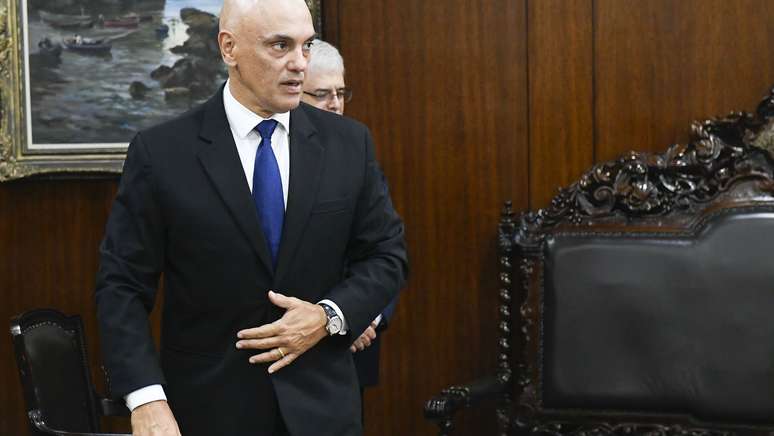TSE President Alexandre de Moraes defended the regulation of artificial intelligence and the creation of an international declaration of digital rights
Minister of the Federal Supreme Court (STF) and president of the Superior Electoral Court (TSE) of Brazil, Alexandre de Moraes, defended the regulation of artificial intelligence during a seminar sponsored by the TSE. Moraes claims that AI has “anabolised fraudulent news” and, as a result, could influence the results of an election.
- Deepfakes, fake news and more: how artificial intelligence can ruin elections
- AGU calls on X, TikTok and Kwai to eliminate misinformation on RS
The TSE president’s speech also addressed other issues relating to disinformation and the election period, such as the responsibility of big technologies and the need for an international declaration for the digital rights of individuals, drawn up by the UN.
AI and fake news
Alexandre de Moraes comments that artificial intelligence “in itself is neither bad nor good, it is an important technological tool that can be used well or used badly”. During the election period, the STF minister mentioned the negative potential used by extremist groups to generate disinformation, such as deepfakes, and the need to create mechanisms to combat it.
“In addition to education, prevention and preparation to combat the use of artificial intelligence to spread false news, it is also important to have administrative, legislative and judicial mechanisms in place so as to be able to fight this use even in a repressive way and not let that this influences the elections”, he explains.
It is worth mentioning that politically motivated deepfakes were vetoed by the TSE for this year’s elections, in addition to other rules that limit the use of AI. Despite all this context, Moraes still expresses concern about the potential of artificial intelligence and points out that the ability to “anabolize” fake news can change the outcome of an election.
“Until [conteúdo falso] is disproved, until the true version reaches the entire electorate, this could change millions of votes,” he explains.
Big Tech and digital rights
During his speech, Alexandre de Moraes defended the idea of an international declaration for the protection of digital rights, developed by the UN. He mentioned network regulatory initiatives in Brazil and other regions, such as the European Union, but still proposes the creation of an international set of rules.
It would even be a way to limit the power of Big Tech, considered a “no man’s land” by Moraes. “We cannot allow these Big Techs to be taken into account technology. They are advertising, media and information companies and as such they must be held accountable like any other,” she commented.
Finally, the president of the TSE cited some measures adopted by the Court, as a channel to identify what disinformation is and how to combat it. There are a set of rules to identify whether news stories are fraudulent and require content to be removed from digital platforms within two hours. Various civil society bodies, such as the Public Electoral Ministry and the National Telecommunications Agency, will work together during the process.
Watch the speech in full:
Elections 2024
The first round of the 2024 municipal elections will take place on October 6, while the second round (if necessary) is scheduled for October 27. It is worth remembering that it is possible download the electronic title to access your Voter ID and check your polling station on your mobile phone.
Trends on Canaltech:
- Windows XP connects to the Internet and becomes infested with viruses within minutes
- The “Doomsday Glacier” is at risk and will cause sea levels to rise
- The 50 funniest Google Assistant jokes
- 🚨 VERY CHEAP | Buy Galaxy S23 Ultra 256 GB with an exceptional discount
- The discovery of black holes confirms Einstein’s theory
- Is the universe in a black hole? Physicists say yes
Source: Terra
Rose James is a Gossipify movie and series reviewer known for her in-depth analysis and unique perspective on the latest releases. With a background in film studies, she provides engaging and informative reviews, and keeps readers up to date with industry trends and emerging talents.


![Tomorrow Belongs to Us: What’s in store for Friday 31 October 2025 Episode 2065 [SPOILERS] Tomorrow Belongs to Us: What’s in store for Friday 31 October 2025 Episode 2065 [SPOILERS]](https://fr.web.img4.acsta.net/img/27/7e/277e1f041c48016486ab18771f578de1.jpg)



